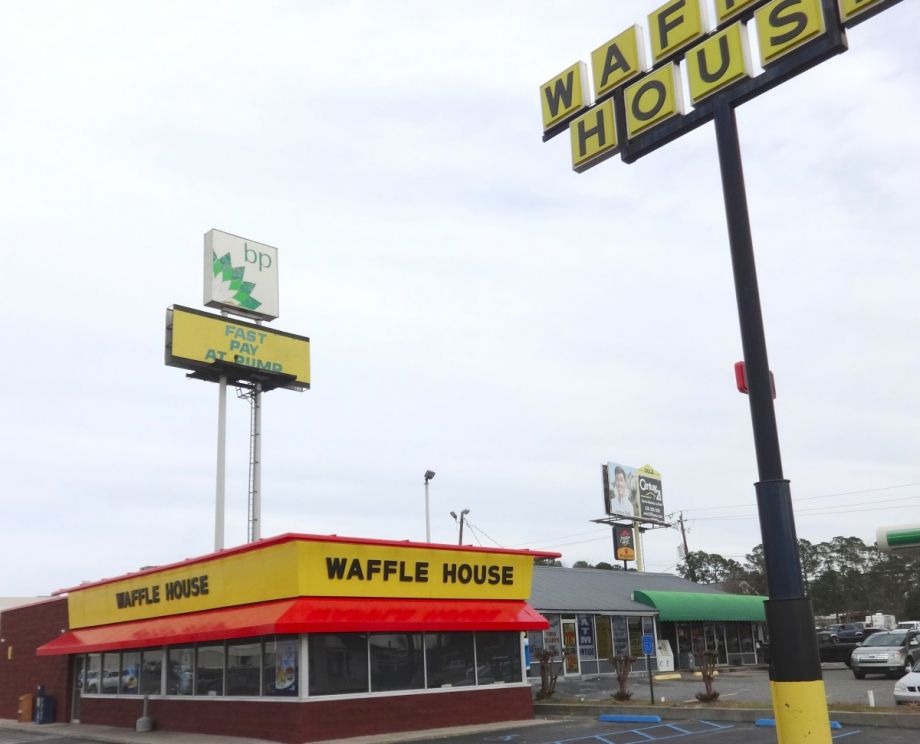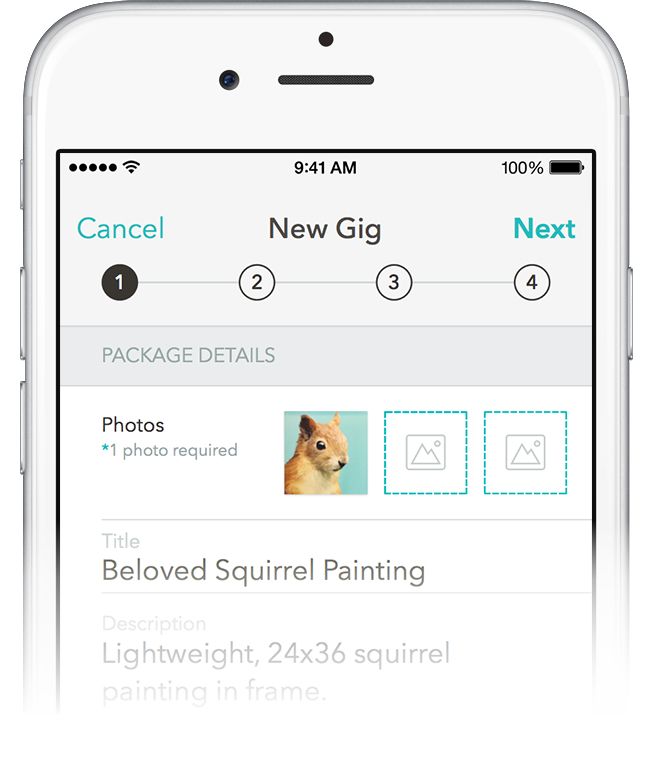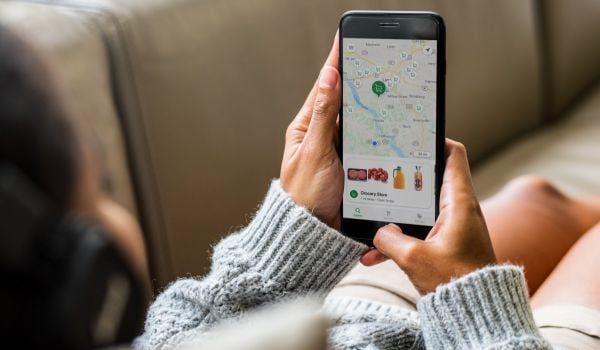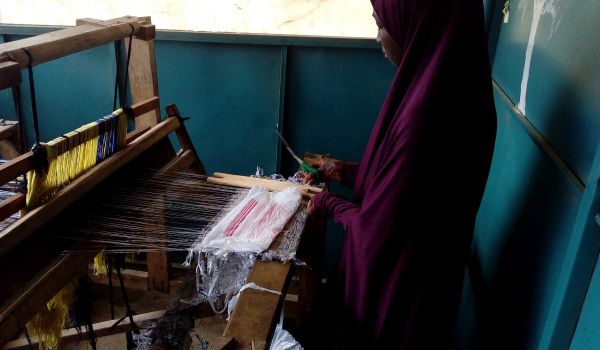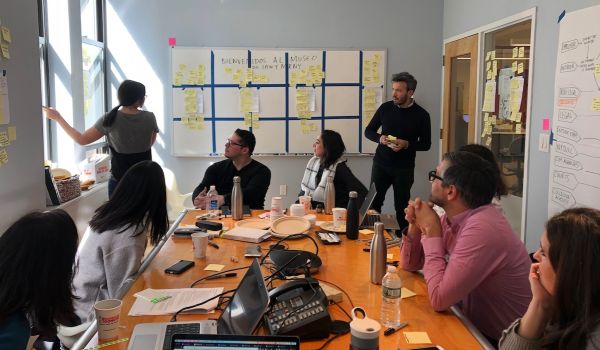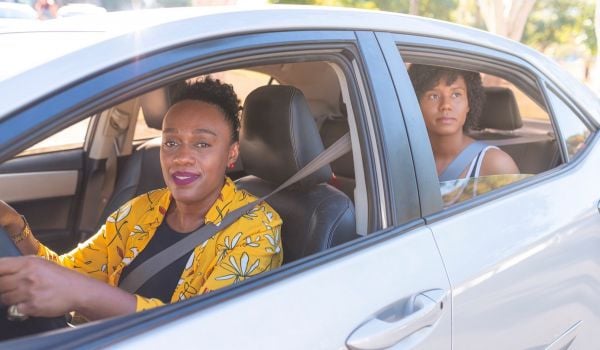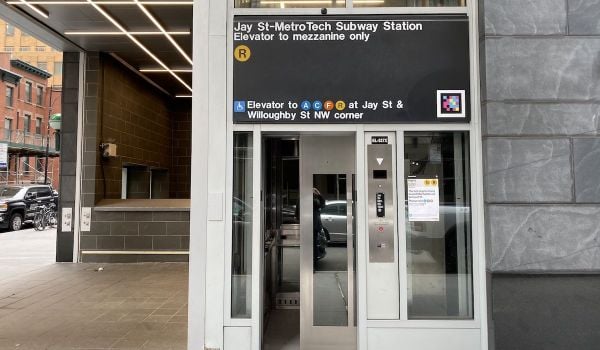Having taken over cabs and hotels, the (for profit) “sharing economy” is spreading, syrup-like, into strange new territory: waffles.
Last month, the Georgia-headquartered Waffle House announced a partnership with Roadie, an Atlanta-based startup that’s been called “the Uber for shipping and delivery.” Roadie offers a mobile app to facilitate exchanges between two people: one who wants something shipped somewhere and is willing to pay, and another who’s driving in that direction and would like to make a small fee while they’re at it.
Waffle House — the “world’s leading server of waffles, T-bone steaks, hashbrowns, cheese ‘n eggs, country ham, pork chops and grits,” according to the partnership’s press release — is now the official Roadie Roadhouse (not to be confused with this Roadhouse), meaning that its 1,750 diners will offer free food and drinks along with a “convenient meeting location for drivers and senders.”
I know — waffles and Uber and ironic nostalgia for weird Americana twee OH MY. But millennial-targeting cuteness aside, Roadie actually does have an interesting idea.
According to Marc Gorlin, the startup’s founder and CEO, Roadie occurred to him on an I-65 overpass in Montgomery, Alabama. Gorlin needed tile for the bathroom floor of his condo in Perdido Key, Florida, but he’d received word that it had just arrived, in his contractor’s words, “broken as shit.” Another shipment (from Birmingham) would take three more days, even though Google Maps estimates driving distance between the two at four hours, 11 minutes. From the overpass, he watched the cars below him speed north and south between the two locations he needed to bridge.
“I thought ‘There’s bound to be someone leaving Birmingham, I just wish I knew who they were,‘” he says. “And I realized there’s someone leaving somewhere and going somewhere else all the time.”
The company wants to use what it calls “transportation heat maps” to sync up deliveries with drivers already on the road. Before it launched publicly in January — with $10 million in Series A funding — Gorlin says he conducted marketing and research at concerts, festivals and other places where people arrived and left en masse. Currently, “gigs” (the word the company uses to refer to deliveries) can begin anywhere in Florida, Georgia, Alabama, Mississippi, Louisiana, Texas, Arkansas, Tennessee, North Carolina and South Carolina. From there, goods can accompany drivers anywhere in the U.S.
“There are definite environmental benefits because another truck is being kept off the road,” Gorlin says.
Since the app targets drivers moving between places — often between cities — it’s less a piece of the intra-city transportation network than Uber (or the courier-themed Zipments). But that doesn’t mean that cities, or possibly state entities, won’t end up regulating it.
According to Jenna Garland with the City of Atlanta, where Roadie launched, officials will likely take their cue from the Georgia General Assembly, where “peer-to-peer services like Uber and Lyft are being hotly debated,” she writes in an email. On Tuesday, the House of Representatives passed a bill that would require Uber drivers to have commercial insurance.
“The City will look to what happens in this legislative session concerning these types of businesses,” she adds.
Gorlin is hesitant to forecast what regulations the company will face going forward. (“I’d have an easier time predicting the winning lottery numbers,” he says.)
Its many Uber comparisons could ring some state and municipal alarm bells. With a reputation for bulldozing local ordinances, lying about driver pay, threatening journalists and undercutting unionized jobs, Uber isn’t exactly well-liked by lawmakers right now.
But several key things differentiate Roadie from the black car company that people love to hate.
First, Roadie isn’t a ride-share — the enormous safety issue that arises when one person drives another around isn’t present.
Second, Roadie doesn’t market its “gigs” as full- or even part-time work. Locally, most deliveries pay between $8 and $20, according to its website-, while longer trip deliveries with oversized items pay up to $200. But the company’s entire premise is built on someone making a trip anyway — unlike Uber, it’s not cultivating a workforce. Consolidating shipping through already-going-there channels could certainly cut into existing workforces, though, be they UPS or USPS. (Interestingly, however, UPS Strategic Enterprise Fund is one of Roadie’s investors.)
Currently, the company self-polices in several areas, mandating that its drivers be over 18 and possess a valid driver’s license and auto insurance, and soliciting feedback from shipper/receivers. It prohibits the shipping of any illegal products, along with tobacco, firearms, alcohol and a number of other things. Perhaps the biggest safety concern would arise, Craigslist-like, from the meeting, but that — according to Gorlin — is where the Waffle House partnership comes in.
“It’s a safe, comfortable, well-lit place,” he says.
So, yes, the “sharing economy” may be trickling into ever more aspects of our daily lives (for good or ill) and, yes, city and state regulators have yet to catch up. But for now, at least, it offers syrup on the side.
The Works is made possible with the support of the Surdna Foundation.

Rachel Dovey is an award-winning freelance writer and former USC Annenberg fellow living at the northern tip of California’s Bay Area. She writes about infrastructure, water and climate change and has been published by Bust, Wired, Paste, SF Weekly, the East Bay Express and the North Bay Bohemian
Follow Rachel .(JavaScript must be enabled to view this email address)


